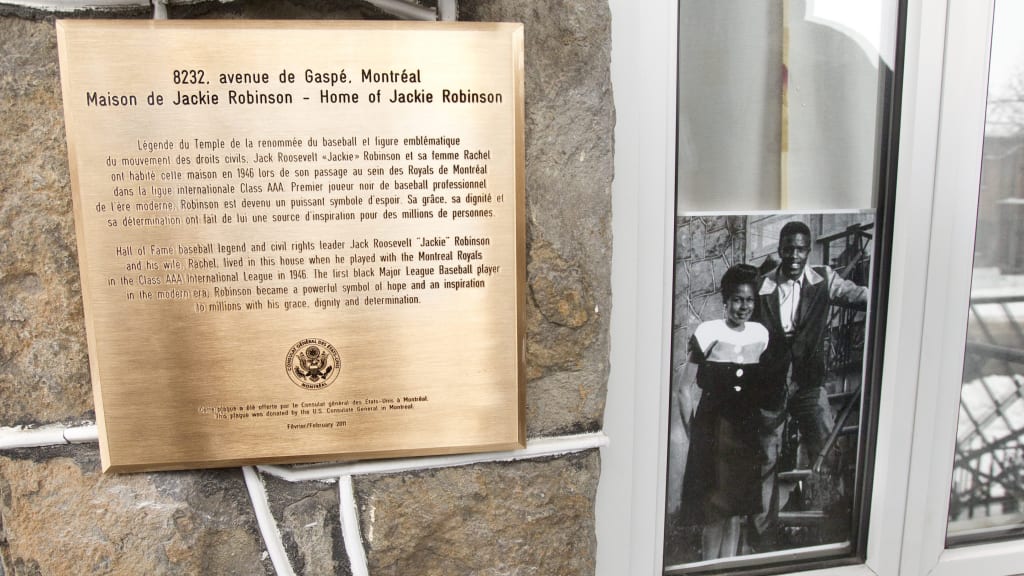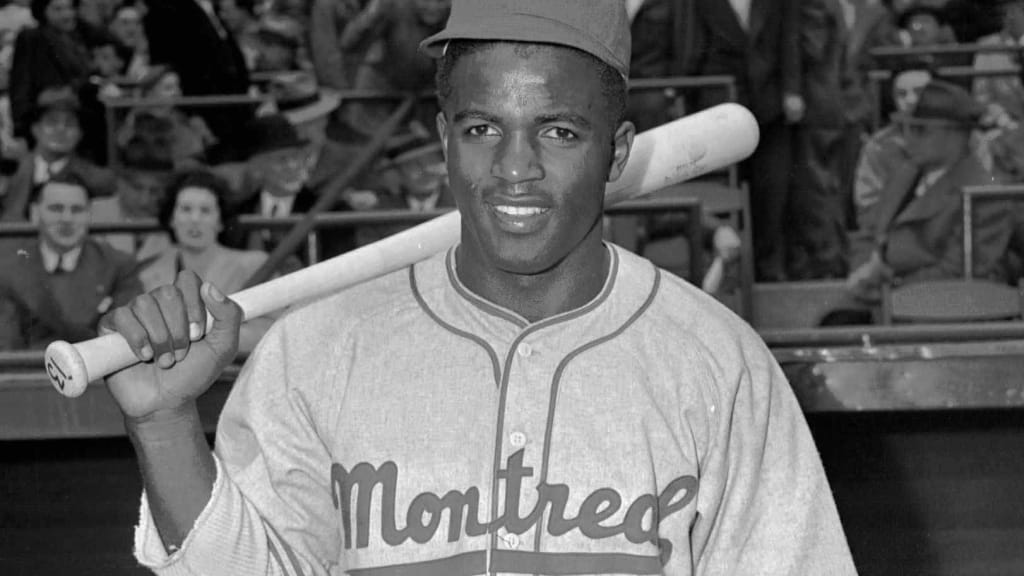A version of this story was originally published in April 2020.
TORONTO -- One year before Jackie Robinson changed the game of baseball when he stepped onto the dirt at Ebbets Field in Brooklyn, N.Y., on April 15, 1947, his baseball journey took him to Canada.
Robinson, fresh off his lone season in the Negro Leagues, was assigned to the Montreal Royals, the Triple-A International League affiliate of the Brooklyn Dodgers. Canada was not Robinson¡¯s home and French was not his language, but that season in Montreal with his wife, Rachel, was a formative experience for them both.
In 1964, Robinson reflected on his time in the city with great care. He felt that Montreal had not only embraced him but had helped propel him forward.
¡°I remember Montreal as the city that enabled me to go into the Major Leagues,¡± Robinson said in an interview with the Canadian Broadcasting Corporation. ¡°Had it not been for the fact that we broke in in Montreal, I doubt seriously if we could have made the grade so rapidly. The fans there were just fantastic, and my wife and I had nothing but the greatest of memories.¡±
Rachel Robinson later wrote that she and Jackie left the South ¡°bruised, stimulated and more contemplative than when we arrived,¡± but she echoed her partner¡¯s love for their time together in Canada.
"Our totally opposite experience in Montreal later that year provided us with an excellent springboard into the Majors,¡± she wrote in The New York Times in 1987. ¡°Montreal and then Brooklyn became special havens where we gradually regained our sense of ourselves and our dignity."
Robinson was a star in Montreal, too. Opening that 1946 season in Jersey City, Robinson went 4-for-5 with a three-run homer, four runs, four RBIs and two stolen bases. By the time the Royals returned to Delorimier Stadium after their opening road trip, it was packed.

Each day, Robinson would leave his home on Gasp¨¦ Avenue and make the short walk to the stadium, which is now long gone. Jackie and Rachel lived on the second floor of a brick duplex, among the tangled and winding staircases so common in Montreal. As Robinson walked, heads would pop out of the adjoining houses, shouting support toward the city¡¯s star player.
¡°The only thing the people of Montreal were asking was that I do the best I possibly can for the Montreal ballclub,¡± Robinson said.
That season, Robinson hit .349 with a .930 OPS for the Royals, including 40 stolen bases, and Montreal won the International League championship, then known as the ¡°Little¡± World Series.
When the team left the field after the final game, the fans stayed and continued to yell for Robinson to return, along with the club¡¯s manager and one other player. When they did, the Montreal fans carried Robinson on their shoulders and later chased him down Ontario Street in celebration.

After being elected to the Baseball Hall of Fame in 1962, Robinson was named to the Canadian Baseball Hall of Fame in 1991, recognizing his brief but impactful time spent north of the border.
Soon after Robinson left Montreal and broke Major League Baseball¡¯s color barrier, his book, "My Own Story," was published in 1948. This was Robinson¡¯s story in his own words, as told to Wendell Smith, the great sportswriter who is credited with first suggesting Robinson to Brooklyn Dodgers general manager Branch Rickey. In that book, Robinson thought back to the moment he left Montreal.
¡°As my plane roared skyward and the lights of Montreal twinkled and winkled in the distance, I took one last look at this great city where I had found so much happiness,¡± Robinson said. ¡°¡®I don¡¯t care if I never get to the Majors,¡¯ I told myself. ¡®This is the city for me. This is paradise.¡¯¡±
